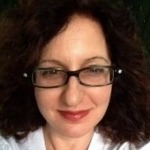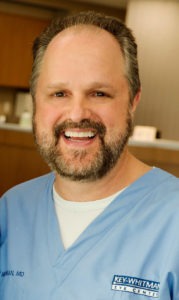Media Training: Nonverbal Cues May Drown Out Your Messaging
How to Address the Problem and Connect with More Potential Patients
// By Lisa D. Ellis //
 You go to great lengths to develop strong messages that will resonate with your target audience and reinforce your brand. But what your spokespeople don’t say may come across louder than their actual words. This is because body language is essential when it comes to establishing trust and connecting with viewers on television and video. Yet many clinicians send the wrong message with their nonverbal clues and this could be turning off potential patients.
You go to great lengths to develop strong messages that will resonate with your target audience and reinforce your brand. But what your spokespeople don’t say may come across louder than their actual words. This is because body language is essential when it comes to establishing trust and connecting with viewers on television and video. Yet many clinicians send the wrong message with their nonverbal clues and this could be turning off potential patients.
Making the Most of Advertising and Media

Jeffrey Whitman, M.D., President and Chief Surgeon of the Key-Whitman Eye Center
Jeffrey Whitman, M.D., President and Chief Surgeon of the Key-Whitman Eye Center, has become well versed in the art of nonverbal communication to market his organization, which is one of the largest refractive surgery practices in Texas, with six locations, including a new headquarters in Dallas. But he realized a while back that his extensive medical training had not prepared him on how to make the most of strategic advertising and media relations.
“Back in the mid ’80s, most medical practices didn’t advertise, at least in the Dallas/Fort Worth markets. It was really frowned upon,” he says. “But when one of our smaller competitors started running cataract commercials, it impacted our volume. We knew that if we didn’t start marketing to let our community know who we were and how we could help them, we would continue to lose market share, which would hurt our practice. That’s when we made the decision to start marketing, too,” he says. His approach was to pursue a combination of paid media opportunities (such as commercials) and also earned media (chances to be interviewed by the media as part of a timely news piece or feature).
The only problem was that being interviewed on television, radio, or even for print media was not a natural thing for Whitman, nor for most of his staff members and colleagues.
“Our expertise is in medicine, not in how to answer questions from reporters. I don’t remember any classes on that in medical school or in residency programs. As doctors, we’re not prepared for communicating on live news segments,” he says, adding that the media is also looking for short sound bites and if they end up editing what you say in an interview, it may not come out as you intended. “It’s also not just about giving information in an interview—it’s about connecting to your audience during the interview. If you don’t do that, the interview won’t help you or your practice,” Whitman adds.
Seeking Help from an Expert
To help him strengthen his ability to connect with prospective patients and avoid common pitfalls, he enlisted the help of Melinda Marcus, M.A., C.S.P., President of Marcus & Associates in Dallas, who goes beyond standard media training to bring in a unique focus on the nuances of health care, coupled with a deep understanding of nonverbal communication, creating a powerful combination.
